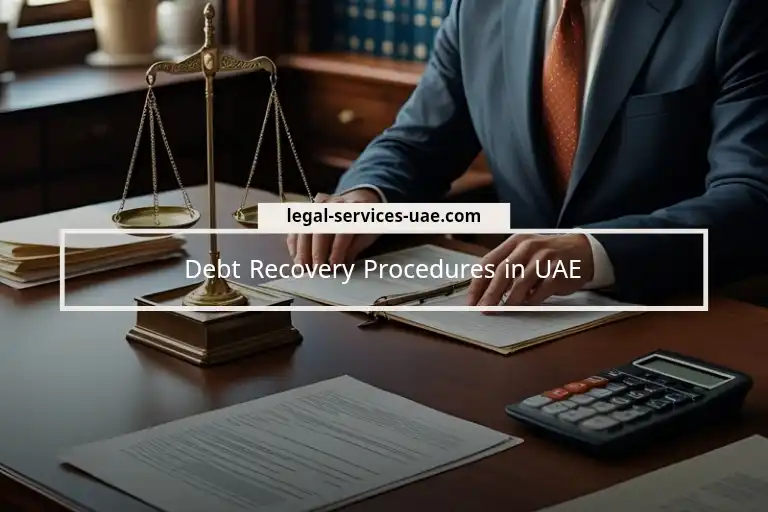In the UAE, the term “insolvency” refers specifically to individuals who are unable to meet their debt obligations. This concept is distinct from the Personal Insolvency Law in the UAE, which does not apply to traders or legal entities such as companies or institutions, regardless of their commercial activities.
For comprehensive legal assistance with personal insolvency cases in the UAE, please click the WhatsApp button at the bottom of the screen to connect with a specialized civil lawyer from our office.
فهرس المقال
Conditions for Declaring Insolvency in the UAE
An individual is considered insolvent if they are not a trader and cannot meet their debts. Traders and legal entities must follow the UAE Bankruptcy Law rather than the personal insolvency provisions.
The conditions for declaring insolvency under UAE law are:
- The application must be filed by the debtor or one of their creditors, or by anyone with a vested interest in protecting the debtor’s assets.
- The debtor must be a natural person. Therefore, any legal entity cannot declare insolvency; instead, it must declare bankruptcy if it cannot pay its debts, regardless of whether it is engaged in commercial activities or not.
- The debtor must demonstrate their inability to pay debts through all available means of proof.
- The debtor should not be in dispute with any creditor regarding the payment of their debts.
- The application for insolvency must follow the procedures outlined in the UAE Personal Insolvency Law.
Procedures for Declaring Insolvency in the UAE
The UAE Personal Insolvency Law outlines the following steps:
1. Submission of the Insolvency Application:
The debtor must file an insolvency application with the court, including:
- A memorandum summarizing the debtor’s financial situation, including any information about their income sources both within and outside the UAE, along with their employment or professional status.
- A statement of the names and addresses of creditors whose debts the debtor is unable or expected to be unable to pay.
- A description of assets, both movable and immovable, within and outside the UAE.
- Information on any legal actions against them.
- A declaration that they are facing current or anticipated financial difficulties and are unable to pay their due or future debts.
- A statement of the funds needed to support the debtor and their family, and any person they are responsible for financially.
- Proposals for resolving financial obligations.
- The name of the expert nominated by the debtor to oversee the insolvency proceedings.
- A statement of financial transfers made outside the UAE in the past 12 months.
- Any documents supporting the application or required by the court.
2. Provision of Required Information:
If the debtor fails to submit any of the required documents, they must provide a justification for not doing so, which the court may accept.
If the court finds that the submitted documents are insufficient to decide on the application, it will grant the debtor a deadline to provide the necessary information.
3. Payment of Fees:
The doebtor is required to pay the court fees. The court will also estimate the expert’s fees, expenses, and anticipated costs for the financial settlement process. The debtor must pay these fees, either in cash at the court’s treasury or through a bank guarantee..
4. Court Decision:
– The court decides on the insolvency application within a maximum of five working days from submission without notifying any parties or holding hearings. If the application is accepted, the court will open the financial settlement process.
– Once insolvency is declared, creditors are prohibited from initiating enforcement actions against the debtor’s assets until the financial settlement process is completed.
How File an Insolvency Case in the UAE
The personal insolvency law in the UAE allows the debtor to file for insolvency, and it also grants creditors and any interested parties the right to submit this request to the court, seeking to declare the debtor insolvent in order to protect the debtor’s assets.
Secured creditors, or those holding preferential debts, can file a lawsuit in court to declare the debtor insolvent if there are indications that the debtor is transferring assets or is expected to become insolvent soon.
The court must urgently consider the request or lawsuit, ensuring there is no collusion between the secured creditor and the debtor and verifying the priority of the creditor’s debt, ensuring no other secured debts take precedence.
The insolvency claim is filed following the procedures outlined in the UAE Civil Procedure Law, as a civil case.
Can an Insolvent Debtor Be Imprisoned in the UAE?
According to Article 319 of the UAE Civil Procedures Law, a debtor cannot be imprisoned if they can prove their inability to pay. The court will not order imprisonment unless it confirms the debtor’s inability to fulfill their obligations.
Therefore, if a debtor files for insolvency and the court issues a ruling declaring them insolvent, this judgment serves as evidence of their inability to pay. As a result, imprisonment is not permissible in this case.
However, Article 66 of the UAE Personal Insolvency Law stipulates that a debtor may face imprisonment for up to two years and/or a fine ranging from AED 20,000 to AED 60,000 in the following cases:
- Engaging in significant speculative transactions that are not necessary for their usual business activities, such as purchasing personal or household goods or services that do not align with their troubled financial situation, or participating in gambling activities.
- Paying off one creditor at the expense of others within six months before filing for insolvency.
- Handling their assets in bad faith by selling them below market value, using methods that harm creditors, or delaying the declaration of insolvency and the liquidation of assets.
- Settling some debts or managing their assets in a manner that violates the terms of their financial settlement plan.
Read more:
This concludes our article on the Personal Insolvency Law in the UAE. We have outlined the process for declaring personal insolvency, which applies exclusively to natural persons who are not traders. These insolvency provisions are designed to manage the financial situation of the insolvent individual in a protective manner. We recommend that anyone looking to declare insolvency seek legal expertise from top insolvency lawyers. For assistance, please contact us via the WhatsApp button at the bottom of the screen.
Sources:
Was this helpful?
Specialized Legal Content Writer, possessing deep legal knowledge and exceptional ability to demystify legislation and analyze judicial developments. He delivers clear, precise content that helps you understand your legal rights and obligations while empowering you to make informed decisions across diverse legal domains. Working within our expert legal team, he ensures credibility and trustworthiness in every piece of content.




